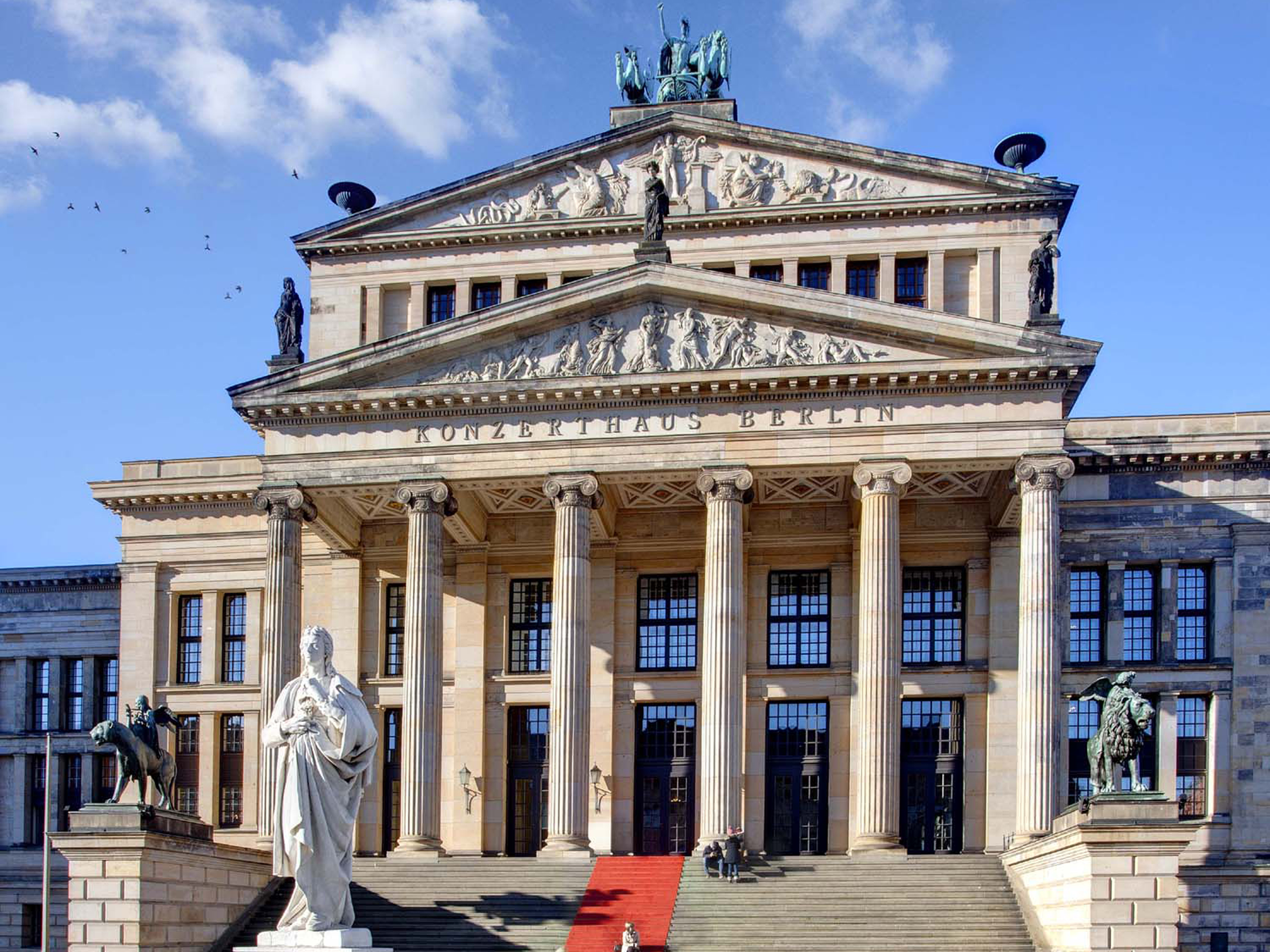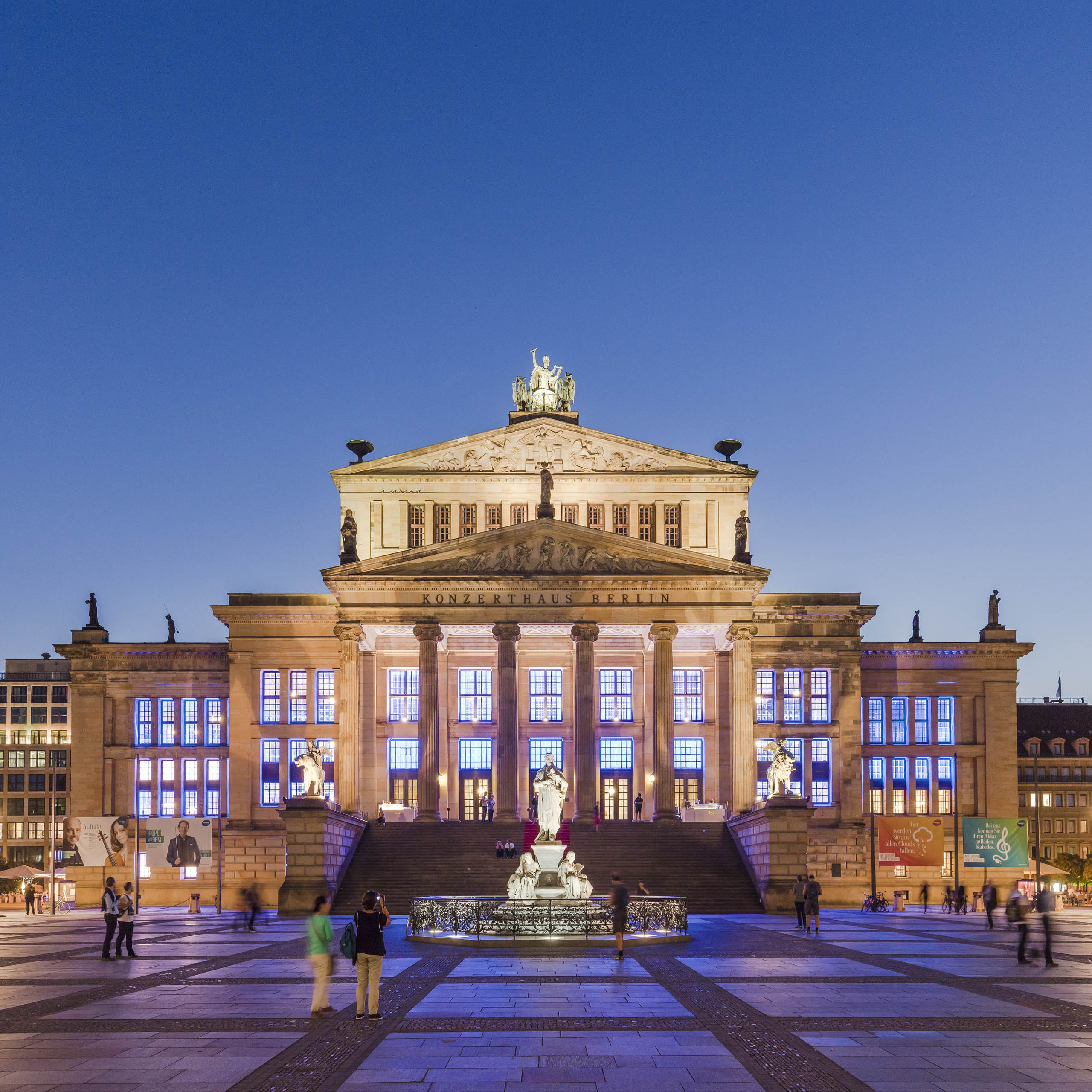Musical Vienna – where to?
Karina Canellakis & Thomas Hampson
Gustav Mahler
“Ging heut morgen über’s Feld” aus “Lieder eines fahrenden Gesellen” für Singstimme und Orchester
Gustav Mahler
“Lied des Verfolgtem im Turm” aus “Des Knaben Wunderhorn” für Singstimme und Orchester
Gustav Mahler
“Das irdische Leben” aus “Des Knaben Wunderhorn”
Gustav Mahler
“Das himmlische Leben” aus “Des Knaben Wunderhorn”
Gustav Mahler
Urlicht
Johannes Brahms
Sinfonie Nr. 1 c-Moll op. 68
Karina Canellakis
Conductor
Karina Canellakis - Conductor

Internationally acclaimed for her emotionally charged performances, technical command and interpretive depth, Karina Canellakis has become one of the most in-demand conductors of her generation. She is the Chief Conductor of Netherlands Radio Philharmonic Orchestra, the Principal Guest Conductor of the London Philharmonic Orchestra. She was Principal Guest Conductor of the Rundfunk-Sinfonieorchester Berlin (RSB) until the end of the 2022/23 season.
As Principal Guest Conductor of the London Philharmonic Orchestra, she recently led an extensive tour of Germany’s most prestigious concert halls with the orchestra and soloist Daniil Trifonov. Karina continues to present exciting modern pieces as well as well-known masterpieces at the Concertgebouw Amsterdam and TivoliVredenburg in Utrecht with the Netherlands Radio Philharmonic Orchestra, where she holds the title of Chief Conductor.
In the 23-24 season, Vienna’s Musikverein will feature her as an Artist-in-Residence, appearing several times across the season with four different orchestras.
Since winning the Sir Georg Solti Conducting Award in 2016 Karina has become a guest conductor with leading orchestras around the world, including the Boston Symphony, Cleveland Orchestra, Chicago Symphony, Philadelphia Orchestra, Bavarian Radio Symphony, Gewandhausorchester Leipzig, NDR Elbphilharmonie Orchestra, Orchestre de Paris, London Symphony Orchestra, LA Phil, San Francisco Symphony, Vienna Symphony and Munich Philharmonic. She was the first woman to conduct the First Night of the BBC Proms in London in 2019, with the BBC Symphony Orchestra. She was also the first woman to ever conduct the Nobel Prize Concert with the Royal Stockholm Philharmonic in 2018.
Already known to many in the classical music world for her virtuoso violin playing, Karina was initially encouraged to pursue conducting by Sir Simon Rattle while she was playing regularly in the Berlin Philharmonic for two years as a member of their Orchester-Akademie. She performed for many years as a soloist, guest leader, and chamber musician, spending her summers at the Marlboro Music Festival, until conducting eventually became her focus. Karina was born and raised in New York City.
After the great success of “Kat’a Kabánova” in the previous season, she brings another Janáček opera, “The Cunning Little Vixen“, to the stage of the Concertgebouw in April 2023. Her concert performances of acts of Wagner’s “Die Walküre”, “Tristan und Isolde”, and “Siegfried” have been met with tremendous critical praise, and she has conducted critically acclaimed productions of Tchaikovsky’s “Eugene Onegin”, Mozart’s “Don Giovanni”, “Die Zauberflöte”, “Le nozze di Figaro”, David Lang’s “the loser” and Peter Maxwell Davies’ “The Hogboon”.
Thomas Hampson
Baritone
Thomas Hampson - Baritone
Thomas Hampson, America’s foremost baritone, has received international honors for his artistry and cultural leadership. Long recognized as one of the most innovative musicians of our time, his operatic repertoire is over 80 roles and his discography comprises of more than 170 albums, including multiple nominations and winners of the Grammy Award, Edison Award, and the Grand Prix du Disque.
Highlights of Hampson’s seasons included his return to the Wiener Staatsoper in his signature role of Giorgio Germont in Verdi’s “La Traviata”, and to Teatro alla Scala for a role debut, Altair in Strauss’ “Die ägyptische Helena”. In future seasons, at Opernhaus Zürich, he will create the role of Jan Vermeer in the world premiere of Stefan Wirth’s “Girl with a Pearl Earring”.
Notable engagements on the concert stage include opening the Oslo Philharmonic’s season in August 2020 with their new Chief Conductor, Klaus Mäkelä and performing at Vilnius Festival in Spring 2021. Hampson also takes part in the Gewandhausorchester’s Mahler Festival, appearing in recital with pianist Wolfram Rieger, and performing Mahler’s Rückert Lieder with Daniel Harding and the Wiener Philharmoniker. He appears on tour with Dennis Russel Davies and the MDR Leipzig in the Philharmonie Berlin and Elbphilharmonie, Hamburg. Hampson also takes his “No Tenors Allowed” programme to the Carmen Wüerth Forum, with bass-baritone Luca Pisaroni. In the Pierre Boulez Saal he begins his return as Artistic Curator for the “Schubert Week” at the Barenboim-Said Academy in Berlin.
The 2018/19 season saw Hampson creating two world premiere operas for the Canadian Opera Company in Toronto and the Houston Grand Opera in Texas: “Hadrian” by Rufus Wainwright and “The Phoenix” by Tarik O’Regan. Autumn 2018 included performances of Britten’s “War Requiem” with the Wiener Symphoniker under Philippe Jordan, in commemoration of the 100th anniversary of the end of World War I, and his regular visit with the Israel Philharmonic Orchestra with Conductor Vasily Petrenko. Hampson returned to the Chicago Symphony Orchestra, the Symphonieorchester des Bayerischen Rundfunks in Munich under the baton of Mariss Jansons and to the Rundfunk-Sinfonieorchester Berlin with Vladimir Jurowski. With the Gewandhausorchester Leipzig and Andris Nelsons he performed Mahler Songs on tour in Japan. Hampson’s gala performance schedule included colleagues Angela Gheorgiu, Nadine Sierra and Kristine Opolais. With Golda Schultz he starred in the Bayerische Staatsoper’s summer gala “Oper für Alle” under the baton of Kirill Petrenko.
Hampson is an honorary professor of Philosophy at the University of Heidelberg and an honorary member of London’s Royal Academy of Music. In addition to several Honorary Doctorates, he is the Kammersänger of the Wiener Staatsoper and Commandeur de l’Ordre des Arts et des Lettres of the Republic of France. In 2017 he received the Hugo Wolf Medal, together with Wolfram Rieger. Hampson is the co-Founder and Artistic Director of the Lied Academy Heidelberg, in 2003 he founded the Hampsong Foundation through which he uses the art of song to promote intercultural dialogue and understanding. His international master class schedule is a continuing online resource of Medici.tv, the Manhattan School of Music, and The Hampsong Foundation livestream channel.
Rundfunk-Sinfonieorchester Berlin
Imploding romanticism and sublimated pain, then the solution – or salvation? – with pastoral lyricism in Beethoven’s mould



